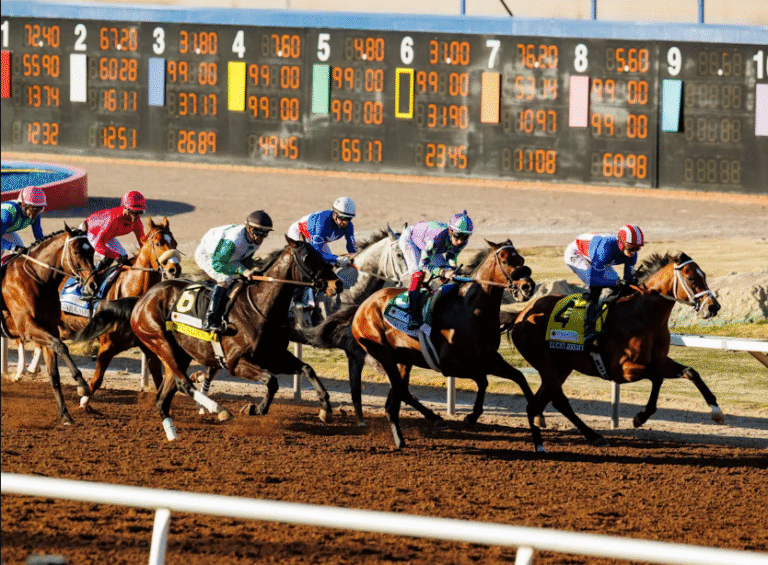How to Bet on Horse Racing: Tips and Strategies for Beginners

Betting on horse racing requires a strategic approach to navigate its complexities. Beginners must grasp essential concepts, including horse breeds and performance metrics. Understanding various bet types is crucial, as is analyzing past performances of horses and their jockeys. Moreover, effective bankroll management can safeguard against substantial losses. With these foundational elements in mind, one can begin to formulate a more informed betting strategy that could lead to success. What key aspects should one prioritize first?
Understanding Horse Racing Basics
Horse racing, a dynamic and multifaceted sport, serves as the foundation for effective betting strategies.
Understanding the various horse breeds is crucial, as their unique characteristics influence performance on specific race tracks. Factors such as speed, stamina, and temperament vary among breeds, impacting their suitability for different conditions.
A strategic bettor analyzes these aspects, enhancing their chances of making informed wagering decisions.
See also: How Horse Racing Tracks Are Built: The Engineering Behind the Sport
Types of Bets Explained
Understanding the fundamentals of horse racing lays the groundwork for exploring the diverse types of bets available to bettors.
The most straightforward options include win and place bets, which focus on individual horse performances.
Additionally, exotic bets, such as exactas and trifectas, offer greater risk and reward by requiring bettors to predict multiple outcomes.
Each type presents unique strategies for maximizing potential returns.
Analyzing Horses and Jockeys
When evaluating the chances of success in horse racing, the performance history of both horses and jockeys plays a crucial role.
Analyzing horse performance, including past races and track conditions, provides insight into potential outcomes. Additionally, scrutinizing jockey statistics—such as win rates and experience—can reveal critical advantages.
Together, these factors create a comprehensive picture, empowering bettors to make informed decisions in pursuit of freedom in their wagering endeavors.
Bankroll Management and Betting Strategies
Effective bankroll management and strategic betting are essential components for any successful horse racing bettor, as they help mitigate risks and maximize potential returns. Establishing clear betting limits and employing disciplined stake allocation is crucial. Below is a strategic framework to guide bettors in optimizing their approach:
| Strategy | Description |
|---|---|
| Set a Budget | Define your total bankroll. |
| Determine Limits | Establish maximum bet amounts. |
| Allocate Stakes | Use percentage-based allocations. |
| Track Performance | Analyze wins and losses regularly. |
| Adjust Strategies | Modify based on outcomes. |
Conclusion
In the exhilarating world of horse racing, beginners can transform their betting experience from a mere flutter into a calculated venture. By grasping the fundamentals, exploring various betting options, and meticulously analyzing both horses and jockeys, one can navigate this vibrant landscape with confidence. Furthermore, employing disciplined bankroll management acts as a sturdy anchor amidst the tempest of chance, ensuring that even the most spirited of races can be tackled with strategic poise.



